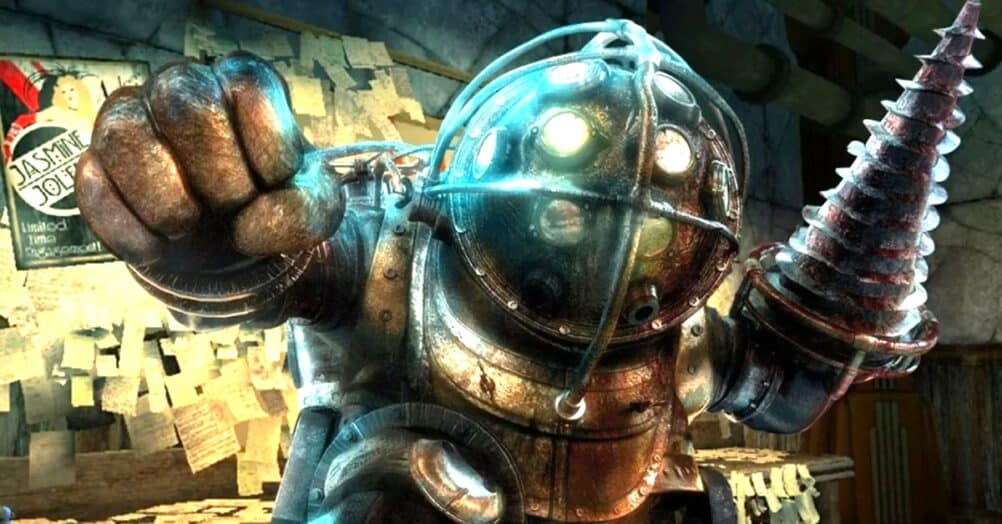
Francis Ford Coppola has spent decades bringing Megalopolis to life. The director began crafting the project back in the ’80s but recognized that it would require a huge budget to match its massive scope, so it spent decades on the shelf. Now, after spending upwards of $120 million of his own money, Coppola has brought Megalopolis to the Cannes Film Festival, and the reviews have begun to pour in.
THR‘s David Rooney said, “It’s windy and overstuffed, frequently baffling and way too talky, quoting Hamlet and The Tempest, Marcus Aurelius and Petrarch, ruminating on time, consciousness and power to a degree that becomes ponderous. But it’s also often amusing, playful, visually dazzling and illuminated by a touching hope for humanity. I can’t say I was always engaged over its two hours-plus run time, but I was always curious about where it was going next. Is it a good movie? Not by a long stretch. But it’s not one that can be easily dismissed, either… But if this ends up being the distinguished 85-year-old director’s swan song, at least he’s capping his career with a risk-taking flourish.“
Deadline‘s Damon Wise said, “True to the advance gossip, Megalopolis is something of a mess; unruly, exaggerated and drawn to pretension like a moth to a flame. It is also, however, a pretty stunning achievement, the work of a master artist who has taken to Imax like Caravaggio to canvas. It is a true modern masterwork of the kind that outrages with its sheer audacity. In the early 20th century, the French shook their umbrellas at this kind of thing, and it will not get a soft landing in 2024, since it commands you to bend to its vision… Megalopolis represents a rare kind of event movie that reinvents the possibilities of cinema to the extent that, halfway through, there’s a very audacious gimmick that tears down the fourth wall in ways younger filmmakers can only dream of. Coppola breaks many of the cardinal rules of filmmaking in the film’s 138 minutes but it upholds the most important one: it is never, ever boring, and it will inspire just as many artists as the audiences it will alienate.“
The AV Club‘s Jason Gorber said, “Megalopolis doesn’t exhibit that common curse of thinking it’s smarter than it is, but I’m also not sure that it’ll live up to even the most cursory of deeper examinations. There are audiences that will be giddy for its insanity, others angered by a seeming waste of pure directorial talent. But for the vast majority of the cinematic hoi polloi, there will be that most cursed of reactions: indifference. Megalopolis is not a film to be seen while doom-scrolling. A great deal of its joy will be to see it in a room, as I did, with the energy of an audience growing increasingly perturbed by what they were witnessing. And yet, the audience was engaged, perhaps a bit shocked, and maybe even aroused, exhibiting the same primal drive that makes some people gawk at car accidents on the side of the road. To say whether I “liked” Megalopolis does its endeavors injustice, but to ignore the fact that it seems deeply nonsensical and in desperate need of some outside perspective to reshape it in slightly more agreeable ways would be unfair.“
IndieWire‘s David Ehrlich said, “While it might be tempting to see this kooky, nepotistically cloistered, and unconscionably expensive magnum opus as the self-involved work of a fading artist who’s lost whatever was left of his ability to tell good ideas from bad, “Megalopolis” does everything in its power to remind the audience that we share in the outcome of its demented fever dream. Which isn’t to say that we’re obligated to make this particular movie a success, only that we’d do well to examine the source of whatever hostility it might reflexively produce within us. Why does change scare us so much that we’d sooner forfeit our freedom to imagine a better world than reckon with the possibilities such freedom allows? Quoth Marcus Aurelius again: “The universe is change; our life is what our thoughts make of it.“
The Guardian‘s Peter Bradshaw said, “Everyone who loves cinema owes Francis Ford Coppola a very great deal … including honesty. His ambitious and earnestly intended new film, resoundingly dedicated to his late wife Eleanor, has some flashes of humour and verve. Jon Voight’s scene with his bow-and-arrow shoots a witty dart. The film’s heavily furnished art deco theatricality sometimes creates an interestingly self-aware spectacle, like an old-fashioned modern dress production of Shakespeare. And certainly a Coppola failure is a whole lot more interesting than the functional successes of lesser directors – the middleweights who aim low and just about hit the target’s bottom rim. But for me this is a passion project without passion: a bloated, boring and bafflingly shallow film, full of high-school-valedictorian verities about humanity’s future. It’s simultaneously hyperactive and lifeless, lumbered with some terrible acting and uninteresting, inexpensive-looking VFX work which achieves neither the texture of analogue reality nor a fully radical, digital reinvention of existence.“
It doesn’t sound as though Megalopolis is destined to be a crowd-pleaser, but the reviews do tease a film that needs to be experienced. At the very least, it certainly sounds different. The boasts a star-studded ensemble cast that includes Adam Driver, Forest Whitaker, Giancarlo Esposito, Nathalie Emmanuel, Jon Voight, Laurence Fishburne, Aubrey Plaza, Shia LaBeouf, Chloe Fineman, Kathryn Hunter, Dustin Hoffman, DB Sweeney, Talia Shire, Jason Schwartzman, Bailey Ives, Grace Vanderwaal, and James Remar.
“An accident causes the destruction of a New York City-like metropolis that is decaying anyway, bringing clashing visions of the future,” reads the description. “On one side is an ambitious architectural idealist Caesar (Adam Driver). On the other is his sworn enemy, city Mayor Frank Cicero (Giancarlo Esposito). The debate becomes whether to embrace the future and build a utopia with renewable materials, or take a business-as-usual rebuild strategy, replete with concrete, corruption and power brokering at the expense of a restless underclass. In between their struggle is the mayor’s socialite daughter Julia (Nathalie Emmanuel), a restless young woman who grew up around power and tires of being a tabloid fixture looking for meaning in her life.“




















Follow the JOBLO MOVIE NETWORK
Follow us on YOUTUBE
Follow ARROW IN THE HEAD
Follow AITH on YOUTUBE